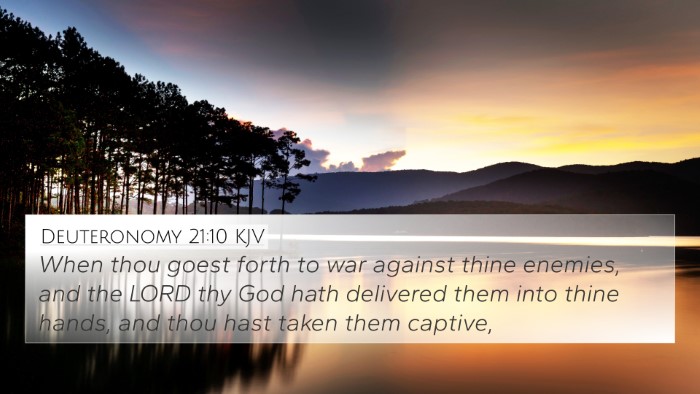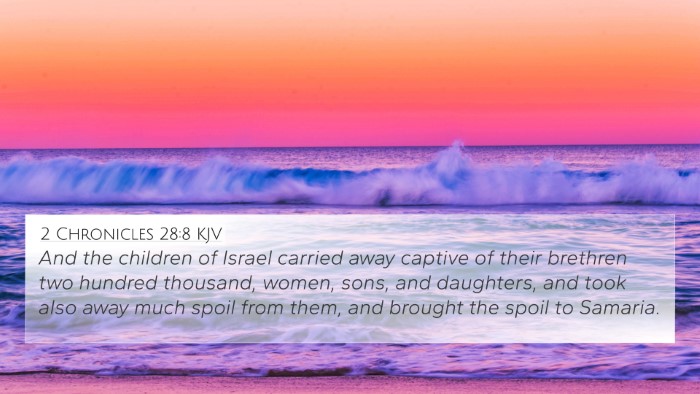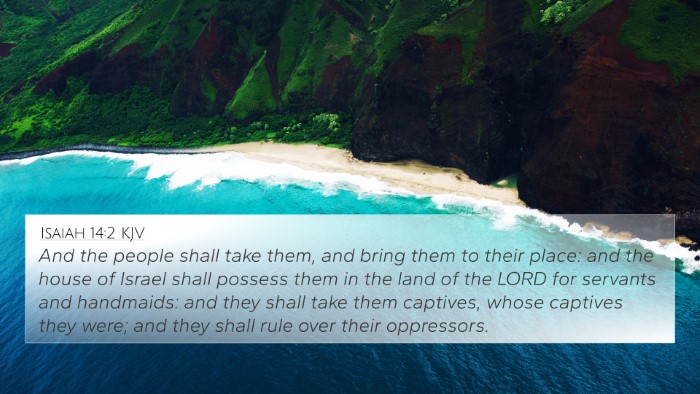Understanding Numbers 31:18
Numbers 31:18 states: "But all the women children, that have not known a man by lying with him, keep alive for yourselves."
This verse addresses the aftermath of the Israelites' battle with the Midianites, where God provides specific instructions concerning the captives. It raises various interpretive and theological questions relevant to the broader themes of purity, warfare, and divine judgment in the Bible.
Verse Context and Analysis
In this chapter, the Israelites are commanded to take vengeance on the Midianites because of their leading Israel into sin. After the battle, God instructs Moses on how to deal with the captives and the spoils of war. This command concerning the women highlights God's mercy and the preservation of potential future generations.
Commentary Insights
-
Matthew Henry: Henry underscores the importance of understanding God's commands within their historical context. He emphasizes the necessity of preserving innocence and the respect for the sanctity of marriage. This command serves to protect those who have not sinned in the conflict.
-
Albert Barnes: Barnes further elaborates on the implications of this command. He notes that these women represent a new beginning for the Israelite community, suggesting that their preservation aligns with God's redemptive plan. This shows an element of God's mercy even amidst His judgments.
-
Adam Clarke: Clarke points out the practical reasons behind this directive. In ancient Israelite society, women played a significant role in the family structure, and preserving those who were innocent was meant to ensure continuity and growth for the tribe.
Thematic Connections and Cross-Referencing
This verse can be connected thematically to several other verses throughout the Bible that deal with warfare, purity, and God's judgment. The concept of mercy intertwined with justice is a recurring theme in scripture.
Cross-References
- Deuteronomy 20:14: Instructions on how to deal with the spoils of war highlight a similar principle of preserving life.
- 1 Samuel 15:3: God's command to destroy Amalek also relates to judgment but showcases the contrast of sparing certain lives.
- Jeremiah 31:22: This verse illuminates God's restorative work and His promise to renew the people, connecting to the preservation of the innocent.
- Psalms 106:30-31: Phinehas’s actions during a time of turmoil leading to God’s commendation parallels the theme of righteous action amidst judgment.
- Matthew 5:7: “Blessed are the merciful, for they shall obtain mercy,” connects the theme of mercy throughout the biblical narrative.
- John 3:17: God’s desire to save rather than condemn draws a parallel to the preservation aspect of this verse.
- Romans 6:23: The contrast of sin leading to death and the gift of salvation enhances the understanding of mercy in Numbers.
Exploring the Verse's Implications
The implications of Numbers 31:18 extend beyond historical understanding; they invite contemporary readers to reflect on the nature of God’s justice and mercy. How do we balance divine judgment with compassion in our modern context? This verse challenges us to examine our views on warfare, justice, and the value of human lives.
Conclusion
Numbers 31:18 serves as a powerful reminder of the complexities found in God's commands. The preservation of innocent lives amidst acts of divine judgment speaks to the intricate tapestry of themes present throughout the Bible, inviting believers to seek deeper understanding through cross-referencing other scriptures.
Further Study Suggestions
Engaging in cross-reference Bible studies can illuminate connections between verses, enhancing one's understanding of the Bible's themes. Exploring how Numbers 31:18 interacts with other scriptures can yield rich insights into God's character and His interactions with humanity.
Utilize tools such as a bible concordance and bible cross-reference guides to discover similar themes and teachings found throughout the text, aiding in the journey of finding Bible verses that relate to each other.







